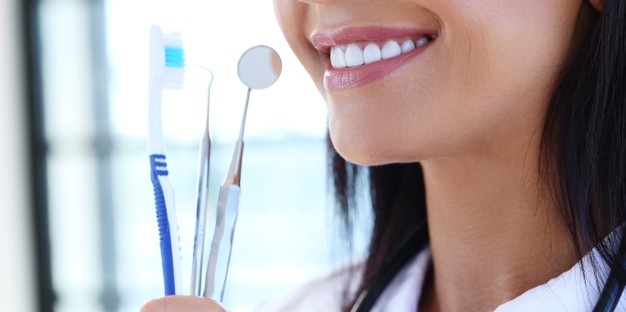It is no secret that our teeth are what makes our smile shine brighter. They also are traditionally considered a sign of good health. Your adult teeth are meant to last a lifetime and serve you well. However, you must properly take care of them to ensure your precious white smile. They are a part of the mouth along with gums and tongue, which also require their share of care. Your oral health is integral to your overall health and well-being as you insert food through it and communicate with others. This list of tips will help you develop or perfect proper oral care for your teeth.
Wash your teeth
The basics of oral hygiene that we hopefully adopt as young children are washing our teeth with fluoride toothpaste and toothbrush. The general recommendation is to wash teeth twice a day, or even after every meal.
Toothpaste with fluoride is the best choice as fluoride is a mineral that strengthens tooth enamel, the protective layer of a tooth, and can even reverse the effect in the early stages of tooth decay. When it comes to the toothbrush, the electric toothbrushes have a good reputation since the vibration massages gums, cleaning them and stimulating blood circulation in them. Furthermore, there are a few types of bristles: soft, medium, and hard. Each of these describes how rough the bristles are and for which type of sensitivity in gum and teeth they are.
Floss and use interdental brushes
Another oral habit we should adopt in early childhood is flossing. The flossing is done with either dental floss or interdental brushes. It is done to clean the spots in the mouth that are hard to reach, mostly placed between teeth, since tooth decay often starts between teeth from a poorly cleaned piece of food stuck between teeth. Unfortunately, caries spreads fast so this one particle can make two teeth infected at the same time. Interdental brushes come in multiple sizes, each made to fit different tooth gapes, and the proper size is usually decided upon consultation with the dentist.
Regular dentist appointments
Even with this elementary care, you might still end up with dental issues. Whether it is genetics, trauma, or something else, the issues you may develop can be treated early or the best if your teeth are in the best condition. Pay special attention to preventive dental care to secure that any possible issue is treated as early as possible and that your smile stays vibrant. Additionally, it is a good plan to take your whole family to one dentist so that they can prevent oral issues in your children. Even orthodontic treatments have a higher success rate if done in the developmental stage (pre-puberty and adolescence).
Stop grinding
Teeth grinding or bruxism is a condition that can be caused by different stressors, with the most common one being stress. Bruxism can cause headaches, facial muscle and neck pain, teeth damage, and even fractured crowns. Teeth and jaw clenching are often done unconsciously, especially while sleeping.
Apart from dealing with hidden mental or emotional stress, the orthodontist can make a mouth guard that will help prevent the damage until other causes are dealt with. Bruxism can be followed by serious medical conditions like sleep apnoea, a condition where the affected person will stop breathing for a few seconds in sleep; dry mouth from sleeping with the open mouth, thus helping the growth of the bad bacteria; or TMJ, the disorder of the temporomandibular joints that connect lower and upper jaw.
A healthy diet is a must
A healthy, balanced diet will not only make you feel better on the inside, but it’ll help keep your teeth in much better condition too. The best diet for your teeth and gums is one that is rich in whole foods, low in sugar, and with a healthy amount of vitamins and minerals. Furthermore, it is important to have balanced meals at a similar time of the day, since snacking can also promote teeth damage.
The effect that sugar has on the teeth is widely known. The combination of carbohydrates and acids eat away the tooth enamel and promote the growth of bacteria that causes tooth decay. It is important to note that sodas and other sugary drinks also have a high percentage of sugar and will do damage to teeth. Additionally, hard and chewy foods also damage tooth enamel, and can even lead to tooth breakage. It is clear that even regular oral hygiene cannot eliminate the effects of poor hygiene.
Avoid tobacco products
If you are a smoker but want to ensure long life with a healthy smile, you should quit. The effects that tobacco can have on teeth are devastating. Smoking weakens your body’s infection fighters (your immune system), therefore making you prone to gum disease, tooth decay, and even tooth loss.
Regular hygiene, preventative dental care, and a healthy diet will be your best allies in keeping your teeth healthy and in place for years to come. Your own vigilance will surely pay off.

